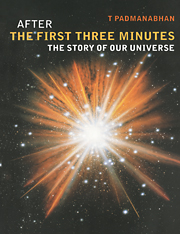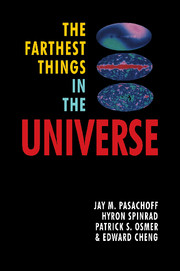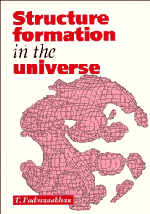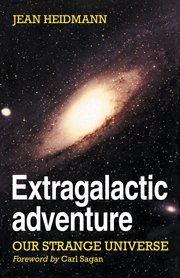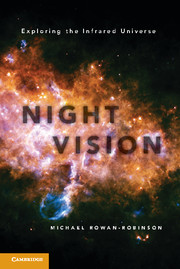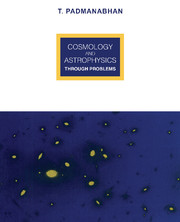After the First Three Minutes
How does our Universe evolve? And how did structures like stars and galaxies form? In recent years, scientists' understanding of these profound questions has developed enormously. This book presents a clear and detailed picture of contemporary cosmology for the general reader. Unlike existing popular books on cosmology, After the First Three Minutes does not gloss over details, nor shy away from explaining the underlying concepts. Instead, with a lucid and informal style, the author introduces all the relevant background and then carefully pieces together an engaging story of the evolution of our Universe. We are left with a state-of-the-art picture of scientists' current understanding in cosmology, and a keen taste of the excitement of this fast-moving science. Throughout, no mathematics is used; and all technical jargon is clearly introduced and reinforced in a handy glossary at the end of the book. For general readers who want to get to grips with what we really do and don't know about our Universe, this book provides an exciting and uncompromising read.
- Up-to-date: cosmology changed completely in 1994 with results from the COBE satellite on the Cosmic Microwave Background; this is the first popular book to present our radical new understanding
- Uses no maths, and includes a glossary of scientific terms
- Written at the level of New Scientist and Scientific American 'thinking reader' in a clear, informal style
- Develops a clear, detailed, state-of-the-art picture of cosmology, without glossing over details, or shying away from the underlying concepts
Reviews & endorsements
"The serious reader will finish the book with an excellent understanding of current research in cosmology...Particularly lucid are the discussions of matter and light, the physics of stars and black holes, and the origin of light elements in the big bang." Choice
"A renowned cosmologist who has contributed much to the technical literature of his field, Thanu Padmanabhan offers an enjoyable account of our current understanding of galaxy formation and evolution, as well as a comprehensive tour of the necessary physics in After the First Three Minutes." New Scientist
"^After the First Three Minutes^ by cosmologist Thanu Padmanabhan is a lucid, nonmathematical overview of cosmology, particularly the origin and evolution of structure in the universe...whoever puts in the effort will be well rewarded by the comprehensive picture of the universe, both what we know and where important gaps in our understanding lie...For anyone interested in the difference between hot and cold dark matter and wanting to put the current pronouncements of cosmological revolution into scientific perspective, ^After the First Three Minutes^ is an excellent place to start." Meteoritics & Planetary Science
"Thanu Padmanabhan's book provides a wonderful service to the scientific community...[it] makes accessible a previously inaccessible field to both scientists and non-scientists." Yale Scientific Magazine
Product details
February 1998Paperback
9780521629720
228 pages
252 × 178 × 19 mm
0.597kg
27 b/w illus. 5 tables
Available
Table of Contents
- Preface
- 1. Introducing the universe
- 2. Matter, radiation and forces
- 3. Observing the universe
- 4. Getting to know the universe
- 5. Expanding universe
- 6. Forming galaxies
- 7. Universe at high redshift
- 8. Open questions
- Glossary
- Further reading
- Index.

